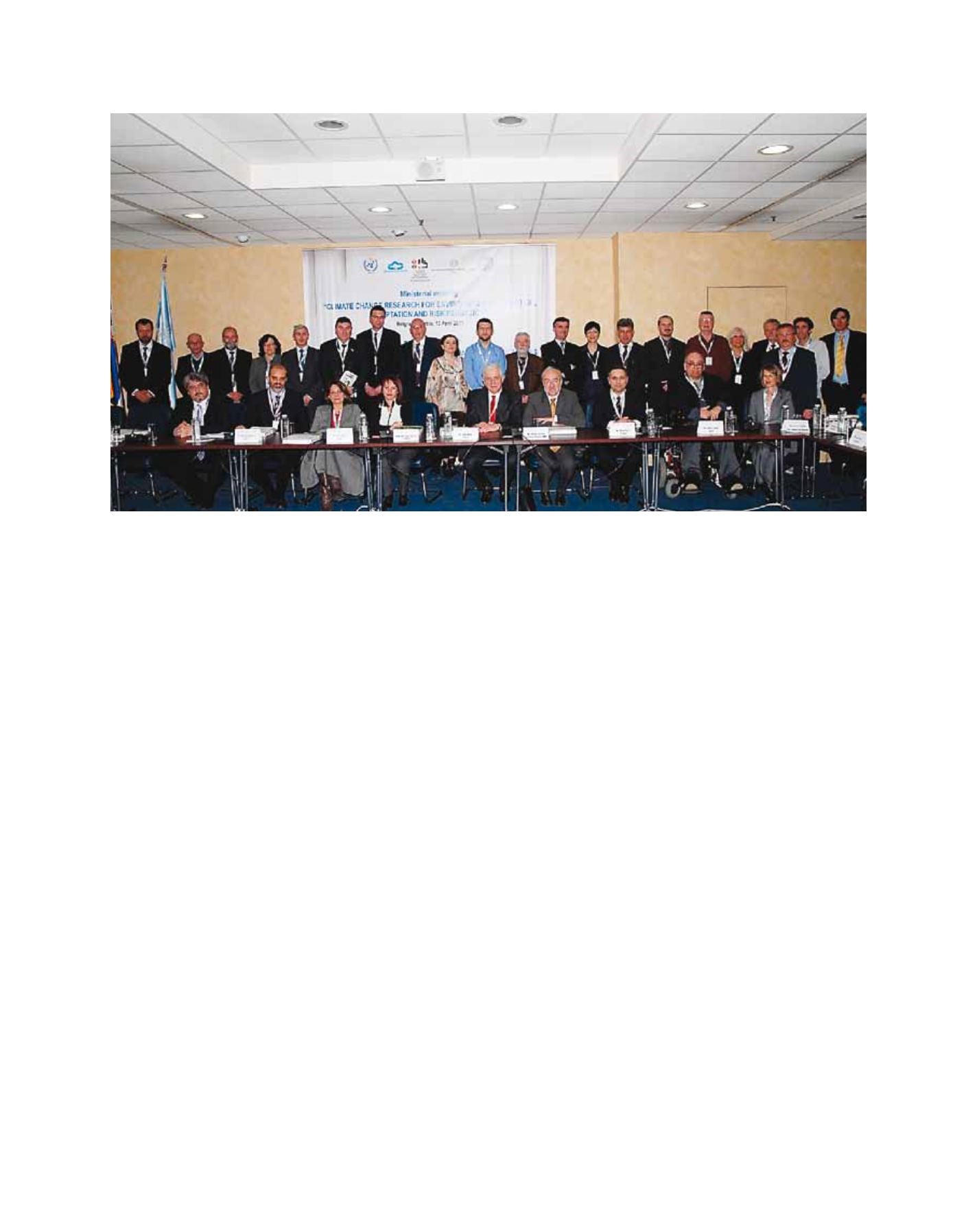

[
] 176
E
nergy
medium-term weather forecasting model at RHMSS. The long-term
vision in research and development activities has been defined in
the ‘South East European Research and Development Programme
of Regional Climate Modeling for 2012-2017’, developed by the
international Expert Workshop which was supported by the
ministerial meeting ‘Climate Change Research for Environmental
Protection, Adaptation and Risk Reduction’ in Belgrade, Serbia,
on 13 April 2011.
3
Capacity building
SEEVCCC supports the activities of NMHSs in issuing climate
watches, based on monthly climate diagnostics bulletins, anomaly
maps, climate extremes indices, weekly and monthly forecasts and
seasonal predictions. SEEVCCC runs an experimental climate watch
system, which is designed to provide advisories (climate watches)
informing partner NMHSs on ongoing, pending or expected climate
anomalies and their possible negative impacts. Experimental work
in this area is based on the connection of probabilistic long-term
forecast of the standardized precipitation index (SPI), obtained from
the SEEVCCC seasonal prediction modelling system with the SPI
calculated from observations.
Based on SEEVCCC climate monitoring, seasonal forecasting and
climate watch advisories issued on 1 April 2012, which related to
the hot summer and lack of precipitation in the Balkan Peninsula,
RHMSS was able to issue a timely (April/May), detailed climate
warning. Warnings were issued in connection with the heat wave,
drought and weather conditions conducive to the onset of forest
fires, all of which were recorded across the whole territory of Serbia
and SEE during June and July 2012.
The WMO Regional Climate Outlook Forum (RCOF) is a regional
mechanism for the formulation and dissemination of climate
outlooks. RCOF’s consensus forecast process stimulates capacity
development in NMHSs and supports the decisions and activi-
ties which mitigate adverse impacts of climate, while
helping communities to adapt to climate variability
and change. In the European region the RCOF process
was launched in 2008, by establishing the South-East
European Climate Outlook Forum (SEECOF) cover-
ing the countries of the SEE and Caucasus region. The
first SEECOF was held in Zagreb, Croatia in June 2008,
and the second (SEECOF-2) in Budapest, Hungary in
November 2009. SEECOF-3, focusing on summer
2010, was carried out as an online collaborative exer-
cise for the first time since the RCOF mechanism was
established by WMO. This exercise was co-facilitated
by SEEVCCC, the RA-VI Working Group on Climate
and Hydrology and the WMO Secretariat. It proved
that, in the RCOF mechanism, online collaboration
could be used as an efficient and effective alternative
to physical meetings. In line with that, taking into
consideration the capacity-building component of
the RCOFs, it has been agreed that face-to-face meet-
ings of regional experts moderated by leading climate
experts should continue to be organized once a year.
As a follow-up of the fifteenth RA-VI recommendation,
SEEVCCC/RHMSS hosted the SEECOF-4; six face-to-
face sessions focusing on the winter season 2010/2011
and 2011/2012 respectively
4
as well as the SEECOF-
5; seven online meetings. Efforts are underway to
strengthen the climate change section in SEECOF, and
to achieve sustainability by linking COF with RCC
and promoting their roles in the Global Framework
for Climate Services (GFCS), bridging the gap between
providers and users of climate information.
Other SEEVCCC capacity building activities cover
sub-regional training workshops and the development
Participants at the ministerial meeting ‘Climate Change Research for Environmental Protection, Adaptation and Risk Reduction’ in Belgrade, April 2011
Image: RHMSS
















